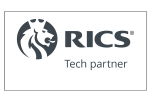After a period of relative uncertainty, the hospitality industry is now looking forward to 2022 with a renewed sense of purpose and ambition. The focus has well and truly shifted, and the trends set to shape the sector in 2022 are becoming more apparent as we move through the first quarter of the year.
The status quo as it existed pre-pandemic is now no longer a given. Instead, businesses in the sector must look to incorporate these emergent trends to recover from such a downturn.
Technology, as ever, will play a huge role in the great reimaging of the industry. Seamless connection points, high-speed internet and personalised preferences will leave an indelible mark on guests before they even set foot on the property, feeding into the wants and needs that are part and parcel of the modern hospitality experience.
Failing to heed these trends, which can all be easily implemented with new technologies, will mean lost opportunities. So, without further ado, here are some key trends to keep in mind this year.
1. Business Leisure & Remote Working
Today, working remotely is becoming more commonplace. In 2021, the number of remote workers doubled, and forecasts show that this will not revert. In fact, big tech companies like Twitter and Facebook are leading the campaign for hybridisation, encouraging ongoing remote working.
Many workers found themselves in a position where they were free to choose their work environment. More often than not, they’ll seek out spaces designed with this in mind, with services like hotdesking, on-demand meeting rooms or other business facilities all readily available.
Hospitality businesses are now capitalising on this increase in remote, hybrid or flexible work, developing areas for business leisure travellers, or even locals looking to change their work environment throughout the week. New companies are even springing up with this demand at the forefront of their strategy. The trend will continue through 2022, so companies in the space should adapt to meet the wants and needs of this rapidly growing segment.
2. Digitised Guest Experience
Hospitality businesses have made great strides with the digitised experience in recent years, though some guests – especially the younger demographic – still feel that it doesn’t quite meet their expectations. For hoteliers, establishing ways for guests to book, customise, check-in or check out, through familiar and established means like smartphones and applications, will be vital.
Digitising and streamlining all or part of the guest cycle, assisted by technologies like mobile check-in, keyless entry or contactless payments, will give businesses more control over the process. Guests these days are used to these conveniences afforded by technology, whether that’s facial or fingerprint recognition, voice assistants or applications, so they will soon expect the same as part of their guest experience.
3. Personalisation
Guests today have grown accustomed to high levels of personalisation. From recommendation algorithms on social media to personalised shopping offers based on past purchases, personalisation is embedded in an array of digital services in daily use.
However, being recognised as an individual by businesses in the hospitality space is lagging behind. Going the extra mile and treating each guest as an individual, tailoring services to specifically meet their needs or requirements, will be the difference between a forgettable stay and a memorable one.
The level of personalisation wanted by guests should go further than their name printed on a welcome card. With a wealth of data at our disposal, hospitality businesses could – if they handle it correctly – be afforded the insight to tailor promotions and offers and automatically deliver services based on previous stays.
Hoteliers are more likely to use their data to optimise revenues, manage their properties or handle customer relationships on a basic level – which is still very important – but with a little guidance and the right processes in place, they could take these nuggets of information and turn them into something truly personalised for their guests.
4. Asset and Facilities Management
Accurately measuring the reliability and condition of assets, facilities and equipment may seem difficult, but when those in charge of facilities management refocus their efforts to eliminate any possibility of facilities failure or downtime through tracking and reporting, it could pay dividends for both the business and the guest.
The whole process can be easily adjusted with turnkey facilities management software, one that offers real-time evidence gathering, maintenance task tracking and reporting. For businesses with multiple sites in a portfolio, this approach becomes even more valuable and even more necessary.
The productivity gains can be monumental, freeing up staff members to focus on some of the more forgotten areas of hospitality when faced with a heavy workload. For hotels with numerous assets, like bedrooms and suites, swimming pools and restaurants, each area and facility must be managed to a certain standard, and the adoption of technology could be the key to unlocking that next level of service most hospitality businesses strive for.
5. The Experiential Economy
As consumer demand evolves, hotels must provide something more than just a room key. Encouraging guests to leave the confines of the hotel and venture out into the surrounding locale is not such a radical idea after all. In most cases, the site of a property is chosen precisely for that fact, the location.
Experiential travel, or the experiential stay, is set to be a prominent feature in hospitality moving forward. But to achieve this, hotels must meet guests halfway. Offering immersive experiences or assisting with their planning process through the means discussed above, taking into consideration personalisation and the digitisation of the guest experience will set them apart from competitors.
Above all, collaboration with the local community is key. More increasingly, hospitality businesses are ingratiating themselves with the surrounding area, building a strong sense of community pride, with staff evangelising for the experiences on offer just a stone’s throw away. This features especially in the business leisure and remote working trends.
This hybridisation, a community space for work and life that offers a true experience, gives individuals something more than just a place to rest their head, creating new revenue streams for the business in the process.
The Hospitality Industry of Tomorrow
It’s generally accepted that hospitality needs to adapt to the changing needs of guests. Some industry commentators suggest that hotels will become a thing of the past, while others take a more conservative stance.
Whatever your outlook, one thing is for certain – demand has evolved and so too must businesses in the space.
It may not be instantly apparent, but technology sits at the heart of all these changes. For the staff, an innovative and technology-led approach frees them up to focus more on the service and the people, and for the guest, a familiar and more efficient experience, incorporating all the digital amenities and services they have come to know and demand, will make all the difference.
Many businesses in the hospitality sector are now at a crossroads, and the quicker they can adapt to the changing demand the better. Things are moving at pace – a pace that can only be matched through a future-focused approach enabled by technology.
To see how Property Inspect can free up time for your hospitality business, contact us for a free demo today.










